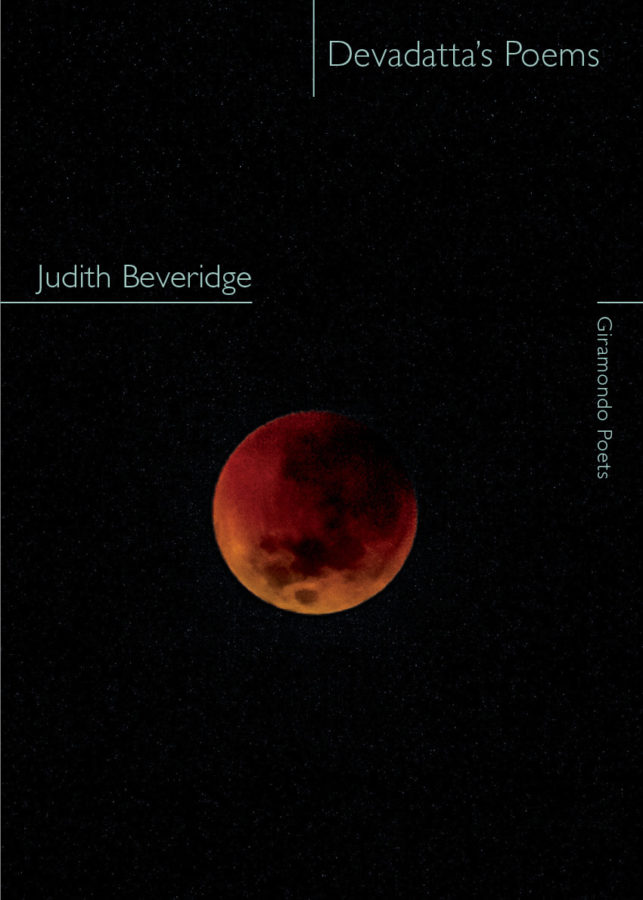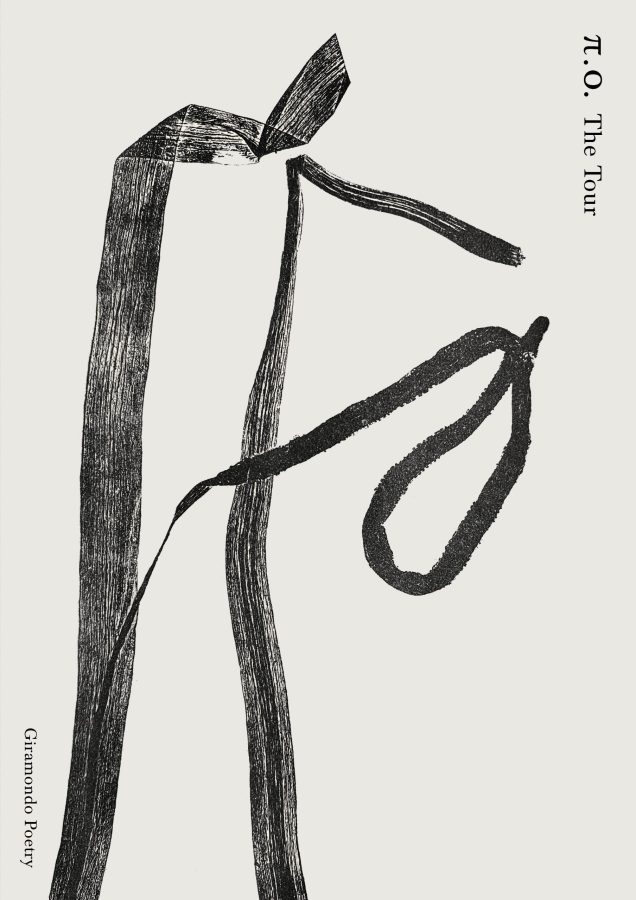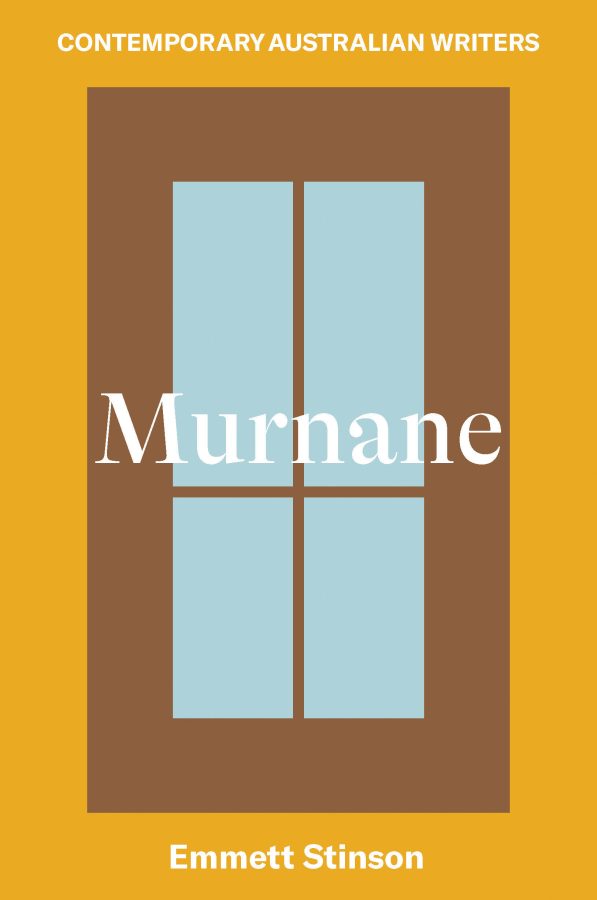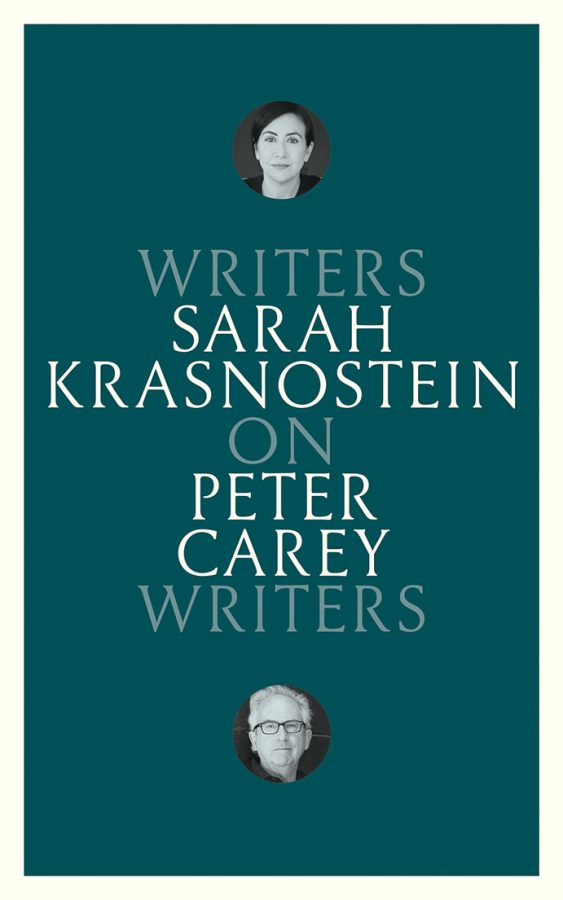Receiving the 2015 Peter Porter Prize for her poem ‘As Wasps Fly Upwards‘ was only one recent highpoint in a dizzingly prolific period of Judith Beveridge’s career. Last year, the publishing house George Braziller brought out a selection of her poems Hook and Eye for the American market. Beveridge was also awarded the Christopher Brennan Prize for a sustained and distinguished contribution to Australian poetry. She co-edited the anthology A Way of Happening (2014) with Carolyn Rickett, which featured poetry from students of the Avondale College of Higher Education alongside poetry by established writers like Peter Boyle, Jan Owen and David Musgrave. Topping it off is the recent collection Devadatta’s Poems. It continues Beveridge’s long-standing interest in Buddhism, which began in Accidental Grace (1996), with poems like ‘The Elephant Odes’ and the closing sequence ‘The Buddha Cycle’, and which informs the longer sequence, ‘Between the Palace and the Bodhi Tree’ that makes up much of Wolf Notes (2003). Devadatta’s Poems extends this focus across an entire volume.
Where ‘Between the Palace and the Bodhi Tree’ is a series of monologues written from the perspective of Siddhattha Gautama before he achieves enlightenment and becomes Buddha, Beveridge’s new collection is written wholly from the perspective of Devadatta, Siddhattha’s cousin or brother-in-law (depending on which tradition one believes), after Siddhattha’s enlightenment. Beveridge investigates Devadatta’s desire to displace Siddhattha as a master of magical powers, as leader of the community of monks, and as the lover of Siddhattha’s wife, Yasodhara. In incorporating characters from ‘The Buddha Cycle’ into ‘The Buddha at Uruvela’, she creates a sense of an informal but expansive seriality between Accidental Grace, Wolf Notes, and Devadatta’s Poems.
Accidental Grace shifts between poems where the speaker is an observer, such as ‘The Dung Collector’, and poems written through the voice of others, such as Hannibal in ‘Hannibal Speaks to His Elephants’ or the South American in ‘A South American Tale’ – a poem inspired by Gary Marx’s article ‘Officials baffled by the slime that ate Venezuela’ and which is an early example of Beveridge combining the factual and the fictive (it also alludes to poetic history, modifying a line by Polish poet Czeslaw Milosz). In the more recent collection, Storm and Honey (2009), Beveridge generates an entirely fictional sequence, ‘Driftgrounds: Three Fishermen’, written from the perspective of the eponymous Australian fishermen. In the notes to that collection, Beveridge acknowledges that she is using place names like Winda Woppa without describing a ‘real location’. As her appropriation of Winda Woppa suggests, there is particular sensual attention in her poetry to the aurality of language, and an appreciation of its lyrical and humourous potential is evidenced in the extensive listing of fish types in ‘The Book’, which include the ‘flower of the wave’, ‘hardyhead’, ‘pineapple fish’, ‘gobble guts’ and ‘happy moments’.
In Devadatta’s Poems, Beveridge returns to the realm of creative non-fiction. The collection is a sustained narration of a life. Texts of the Pãli canon of the Theravãda Buddhism of south-east Asia are taken as authoritative sources. Scholar of Buddhism Lawrence Normand argues that Westerners have typically viewed Buddhism as ‘a religion located in texts rather than in the practices, rituals and beliefs that constituted Buddhism in its homelands’. He also suggests that this attention to texts follows Protestantism’s focus on the Bible. Furthermore, a tendency to focus on the Buddha as an individual reflects the attention Protestantism pays to the life of Jesus and his ‘morality, compassion, and sanctity’. It may, however, simply reflect Western tradition’s privileging of the concept of the person as a singular, continuous, and coherent entity. In its focus on the pre-enlightenment life of Siddhattha Gautama, Beveridge’s sequence ‘Between the Palace and the Bodhi Tree’ belongs to a tradition that includes works such as Edwin Arnold’s The Light of Asia (1879), Herman Hesse’s Siddhartha (1922) and Jack Kerouac’s Wake Up: A Life of the Buddha (1955).
Steve Collins argues that Buddhism ‘denies that the words person or self denote anything ultimately real’. Rather, it proposes a radical contingency of self. Some commentators, such as Michael Heald, have maintained that Siddhattha’s ‘pursuit of transcendence fundamentally alters the tenor of his journey, the tone of his story, and his import as a character’. That is, as a narrative, the story of Buddha’s life is informed by an exploration of a mode of knowing that foregrounds both the importance and the variability of apprehension.
Devadatta’s Poems, however, is written from the perspective of Devadatta, a lesser known figure in Buddhism, who seeks to displace Siddhattha without success. Beveridge takes him from the margins, placing him at the centre of her volume. Moreover, she gives him possession in the title: the collection is his. Devadatta is a flawed figure with human failings, whether these be his ambitious drive to power or his carnality. He not only provides a counterpoint to Siddhattha’s enlightenment, but becomes a vehicle for Beveridge to assume the role of observer (watching Siddhattha), as well as providing the lyric ‘I’.
Rather than give Siddhattha any special traits, ‘Between the Palace and the Bodhi Tree’ portrays him as a figure who struggles with weakness on his path toward enlightenment. Although he is equivalent in degree of feeling and frailty to the everyday figures in ‘Driftgrounds: Three Fishermen’, a key difference is that Beveridge spends significant time considering the moral pressures of his decision-making.
‘Between the Palace and the Bodhi Tree’ was presented in Wolf Notes as an ‘imaginative depiction’ of the life of Buddha. In her notes at the end of Devadatta’s Poems, Beveridge is careful to point out that she has employed ‘a great deal of poetic licence, inventing characters and scenarios, and at times being deliberately historically inaccurate’. She states that particular names or phrases have been used for poetic effect, while also noting that she has introduced various deities, Buddhist assemblies and the sitar, which are from a later period. Nevertheless, several pages are spent explaining her use of dating, spelling, doctrines and characters. Interpreting Devadatta ‘through [her] own lens’, Beveridge makes him ‘more lascivious and pleasure seeking, but also more wistful and equivocal than is suggested in the Pãli canon’. Siddhattha expresses anxieties in ‘Between the Palace and the Bodhi Tree’, but he appears far more controlled and calm in Devadatta’s Poems – partly because the narrative is set after his enlightenment, but also because it is framed through Devadatta’s subjective gaze.
Devadatta is often positioned as Siddhattha’s opposite or Other. Sometimes, this is self-nominated. Devadatta declares himself a ‘daredevil’, while Siddhattha is inclined to cautiousness. At other times, the distinction is suggested rather than made explicit. While Siddhattha is presented as a charismatic, loved figure, Devadatta is homesick, bored and prone to fantasising. He is narcissistic where Siddhattha is altruistic. Rather than accept the tradition that has Devadatta as brother to Yasodhara, Beveridge selects the alternative back-story, which proposes that Devadatta lost Yasodhara to Siddhatta in a ‘rival test of arms’. In this version, there is a literal pitting of the two against each other. Devadatta covets Yasodohara; his desire becomes an obsession and the source of his suffering. Often he is defined by lack, by what he does not have at his command.
Through Devadatta’s perspective, the methods of Buddhism are questioned. He compares the ‘gushing, mouth-watering ripeness of my own name’ to the rigidity of mantras, prayers and fasts. He also critiques the doctrine of patience and frugality, pointing to poor seasons and social inequity as alternative causes of suffering. In ‘The Buddha of Uruvela’, he declares:
what shackles them to suffering
is not desire, as the Buddha exposits, but the hard-set,
iron-fisted system of caste.
That Buddha comes from a privileged background only makes Devadatta rail more. Failing to reflect on the ramifications of his own origins, he foregrounds instead the material hardship of being a monk: the lack of food, the rudimentary medicine, the physical rigours and village suspicion. He is aware of the hierarchies that operate at every level, divisions between the ruling class and the working class, even of one country being a vassal state of another.
Beveridge occasionally undoes Siddhattha and Devadatta as polarised characters. This can be seen in the way that Siddhattha’s ‘bastion of equanimity’ is briefly mirrored in Devadatta himself:
a peace came over me that had the equanimity
of snow.
While Devadatta plots a coup d’etat, he also has doubts about his leadership skills, which echo Siddhattha’s own in pre-enlightenment. Yet Devadatta’s remains defined by subversion, ‘wondering if I’ll ever inspire anything but windy dissonance’. Beveridge further emphasises how Siddhattha and Devadatta are tied by their common history. Poems like ‘The Past’ describe an idyllic childhood where love existed between them. Their sharing of experience is emphasised by plural pronouns such as ‘we’ and ‘our’, yet Devadatta questions whether Siddhattha shares the same memories or whether that, too, differs between them. It is here that Beveridge deploys poetic licence, for their childhood is typically characterised as the origin of Devadatta’s envy, thus simplifying his character and making it seem essentially fixed, rather than developing over time.
Devadatta’s life is presented in chronological poetic episodes. In ‘Vultures Peak’, for instance, his desire is grounded, as Devadatta decides to smell the perfume of plants and watch the farm women rest and work. A few poems along, in ‘Conversation with Ajatasattu’, desire begins to take wing. Devadatta imagines confessing his desire to kill Siddhattha and persuading Prince Ajatasattu to imprison his father. Finally, in ‘Rocks, Vultures Peak’ Devadatta attempts to act on his desire and carry out his plan.
While following the conventions of biography and the events narrated in the Pãli texts, Beveridge aestheticises both Devadatta and Siddhattha through a rich lyric narrative. The volume’s title emphasises this: we are reading Devadatta’s poems. The collection revels in the powers of storytelling and of the gifts of the poet. Michael Heald has noted that in ‘Between the Palace and the Bodhi Tree’, Beveridge recasts Siddhattha in her own image as a lyric poet. This is reinforced by the epigraph in Devadatta’s Poems, an excerpt from May Swenson’s ‘The Process’, where words are given the power of birds that hop
up
an ivory ladder to the top
where it is light and they remain
and are believed
Words themselves are mobile, pleasurable forces, like water turning ‘pellucid lilac in the light of the late summer sun’. They are the vehicle for the journey towards transcendence, the way one might ‘lift on viridescent wings’, to use a line from Wolf Notes’ ‘In the Forest’.
Transcendence is necessarily utopic. Heald argues in Southerly that in Wolf Notes Beveridge figures Siddhattha as the embodiment of the ‘elusiveness and implausibility’ of transcendence. In my review of Wolf Notes, I was critical of the romanticism that seemed to underlie ‘Between the Palace and the Bodhi Tree’, in that transcendence is viewed in that sequence as a possible state and that the poet has bardic powers to enable it. Yet this also foregrounds the hybrid nature of Beveridge’s Buddhism, which shifts between the Western and non-Western traditions. As D. S. Lopez Jr. points out, any Western engagement with Buddhism will be partial and will involve a ‘dynamic process of borrowing, conflict and interaction between and within traditions’.
Much of the spare imagery of Beveridge’s writing has a contemplative visual beauty:
Now, over the plain there’s a slip
of moon like a dew-started wing declaring itself
against the heat. Haze in the distance and a thread of smoke.
Sound has a soothing effect on Devadatta’s thoughts. There is a plentiful use of consonance – ‘Soon night will fall over / the shoulders of the foothills’ – and alliteration: ‘swippling swishes of fly-maddened flails’. Images are striking, with frogs ‘gleaming like bright / splatters of butterfat’. The reader is led through this detailed landscape and, at times, it appears otherworldly, occasionally exoticised. This is particularly evident in depictions of women, whether it be Yasodhara with her bracelets, ivory combs and thick hair, or the garland maker’s daughters with their ‘fecund fingers’. Framing the volume through Devadatta’s gaze distances Beveridge from this feminine objectification.
Offsetting this is Beveridge’s extensive use of colloquialisms such as ‘backyard empire’, ‘new-fangled’, ‘riffraff’, ‘slim pickings’, ‘load of balderdash’ and ‘you talk such trash’. Such sayings make Devadatta more accessible and contemporary. The reader is given insight into the frustrations that Devadatta experiences, while also sensing how displaced Devadatta sometimes is from his surroundings. Occasional moments of black humour reinforce this contemporaneity. Devadatta imagines the headlines if he stoned Siddattha to death: ‘Religious moderate crushed by conglomerate’.
Heald suggests that Beveridge’s poetry is a meditative practice that focuses on habitual processes in a ‘sustained, nonjudgmental, or non-reactive way’. This is enacted formally. Many of her poems are formally regular, with stanzas in quatrains, quintrains or couplets. A number of them use strategies of repetition and incorporate aspects of the pantoum. In ‘Tailspin’, repetition suggests sustained discipline, in contrast to the poem’s subject of excess: Devadatta’s desire for Siddhattha’s wife, Yasodhara. The poem raises the paradoxical question of whether Devadatta’s sensual desire – ‘I smell her hair, her scent of jasmine’ – is a form of mantra and if his sustained attention to particular details of an object of desire transforms what is otherwise lustfulness into a form of meditation. Beveridge does not guide or instruct toward any judgement of Devadatta. Like Siddhattha and Devadatta, readers must wander through the volume on their own journey.
As one progresses through Devadatta’s Poems, one becomes partly aligned with the patterns of Devadatta’s thoughts and, at times, I even identified with Devadatta’s railing. His anger is directed at Siddhattha’s quiet powers, but I felt that Beveridge’s easeful lyricism and slow narrative pace was a bit too mindful, a little too perfectly crafted. Like Devadatta, I sometimes longed to experience some formal chaos, some demonic disruptions that would leave the reader destabilised, unsure of what kind of journey they might be taking and whether or not it might even go on. Devadatta’s Poems is a highly accomplished collection. However, if I am signing up for a poetic trip, I think I would prefer something a little more off-track, with some unexpected thorns, and a challenging fraying of voice.
References
Judith Beveridge, Accidental Grace (University of Queensland Press, 1996).
⎯ Wolf Notes (Giramondo, 2003).
⎯ Storm and Honey (Giramondo, 2009).
⎯ Hook and Eye (George Braziller, 2014).
Judith Beveridge and Carolyn Rickett (editors), A Way of Happening (Puncher and Wattmann, 2014)
Steve Collins, ‘Buddhism in recent British Philosophy and Theology,’ Religious Studies, no.21 (1985).
Michael Heald, ‘Putting Words in the Buddha’s Mouth,’ Westerly, 55.1 (2010).
D. S. Lopez Jr. (editor) Buddhism in Practice (Princeton University Press, 2007).
Lawrence Normand and Alison Winch (editors), Encountering Buddhism in Twentieth-Century British and American Literature (Bloomsbury, 2013).






